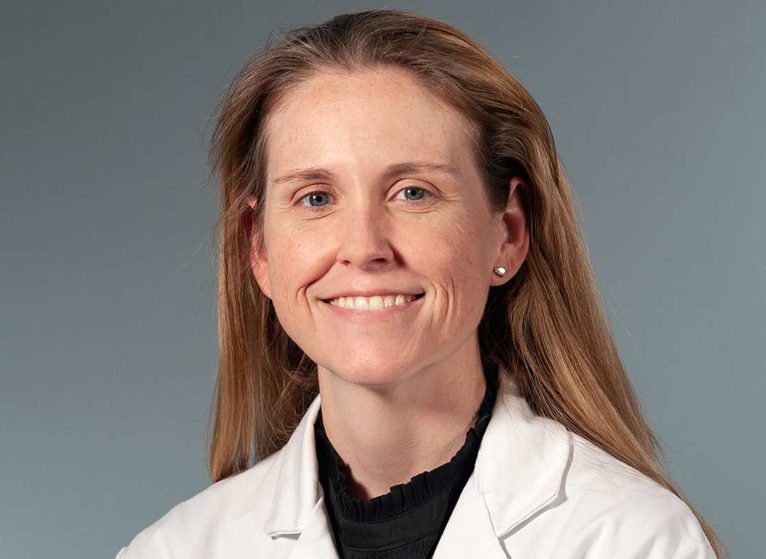More than 37 million Americans have chronic kidney disease (CKD), according to the National Kidney Foundation. For nephrologist Daphne Knicely, MD, taking care of them is personal. Her mom had kidney disease and was on peritoneal dialysis, a type of at-home dialysis.
Knicely is the medical director of Dialysis Staunton. Besides CKD, she also cares for patients with:
- Acute kidney injury
- Electrolyte disorders
- Kidney stones
Meet a UVA Kidney Doctor
We asked Knicely to answer our 7 Quick Questions.
Why did you become a doctor?
My mother’s nephrologist really influenced me. My mother was on peritoneal dialysis. Her nephrologist not only took care of her. During office visits, he would take the time to ask how we were doing. He would ask me about my schooling, what I was planning to do for college, etc. (I was in high school at the time).
He even came to our house to see my mother when she wasn’t doing well. He realized that kidney disease affects the entire family and took the time to get to know us. I try to emulate him whenever I see patients. I take the time to know the patient and family.
Why did you become a nephrologist?
My mother’s nephrologist influenced me to become a doctor. But it wasn’t until my internal medicine training that I chose to become a nephrologist. I admired how the nephrologists knew their dialysis patients. For example, they could tell “Ms. Smith” wasn’t feeling well because she didn’t have her lipstick on. And they knew that “Mr. Jones’s” daughters took the patient on a surprise birthday trip each year. So they would work with the dialysis unit to plan his dialysis around it (without him knowing where, but with his permission to organize).
Nephrologists see their dialysis patients at least once a month and up to 4 times a month, so they develop a unique relationship that I really valued and want to have in my career.
What's one thing about your specialty that might surprise people?
People think dialysis is the end of the world. Yes — no one would choose to do dialysis unless it was absolutely necessary. But I have patients who have been doing it for 20+ years (they either can’t or chose not to get a transplant).
Also, people are surprised that there are home dialysis options (peritoneal dialysis and home hemodialysis). Dialysis in the present day is not like it was 20 years ago. We try to get people on the type of dialysis that fits their lifestyle.
What's the most exciting thing happening in the field of kidney disease right now?
There is a lot of research on wearable dialysis. It probably won’t come about in my career, but the prototypes are pretty interesting.
Where did you grow up?
Greenville, North Carolina.
Kidney Care Near You
We have dialysis centers throughout much of Virginia.
Who is your inspiration or hero?
My father, who has since passed away from pancreatic cancer. He lived life to its fullest. Friends and family always think of him as joking, smiling, and laughing. His motto was “Life is too important to be taken seriously.” I try to live by this motto as well.
What's your favorite thing about working at UVA?
By far the people! Everyone (from the janitorial staff to the physicians) cares and takes pride in their work. Everyone cares about the well-being and satisfaction of our patients. You can walk down any hall in any building on the UVA campus or satellite locations, and everyone you meet will smile and greet you.
